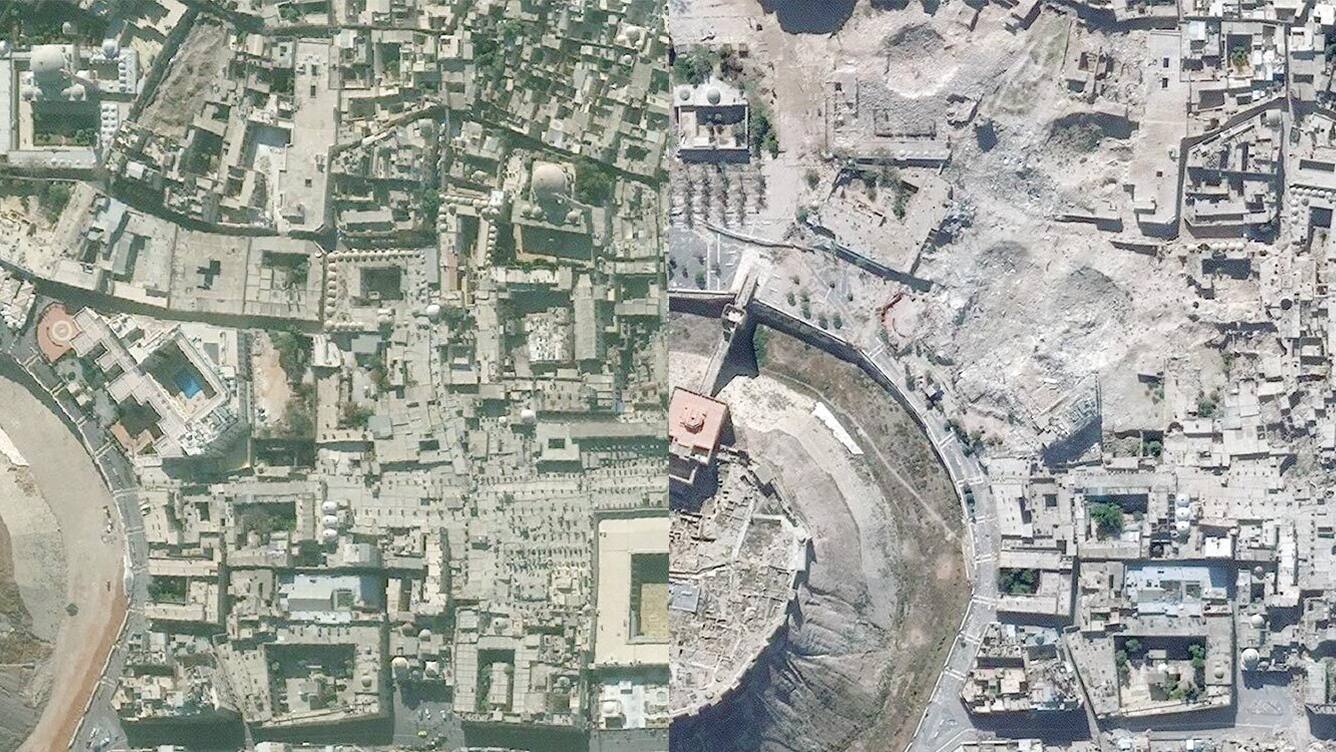Post-Conflict Reconstruction in the Middle East Context, and in the Old City of Aleppo in particular (18-19 June 2015)
Due to escalation of the conflicts in the Middle East and to the significant destruction of cultural heritage, a meeting was organized by World Heritage Centre with a group of multidisciplinary experts to brainstorm on the issue of post-conflict reconstruction in the Middle-East context, and in the Ancient City of Aleppo in particular, at UNESCO’s Headquarters on 18 and 19 June 2015.
The meeting gathered a small group of multidisciplinary international experts whose work and experience are valuable to shed light on post-war reconstruction and who are knowledgeable about the Middle East from a political, social, urban, archaeological, architectural and technical point of view, as well as UNESCO staff whose daily work is related to cultural heritage protection in conflict. The meeting sought to address theoretical and deontological approaches, comparative historical overviews of post-war reconstruction since World War I, and several case studies. The aim of the meeting was to initiate reflection on this topic and lay the foundations for an elaborated approach to post-conflict reconstruction in the Middle East.
Themes of the Meeting
The meeting was organized in four sessions. The first session examined the reconstruction in Europe after World War II, and several case studies in Bosnia Herzegovina, Jerusalem and Beirut; it shed light on the complexity of reconstruction, its evolving theoretical, ideological and practical frameworks, and on the involvement of the private sector. This session also addressed the challenges of urban reconstruction, the crucial holistic and integrated approach that it requires, in addition to its role in re-building the urban environment of traumatized societies in which social fabric has been irreversibly changed.
The second session analyzed the existing theoretical framework and international charters in the area of conservation and their relevance in relation to reconstruction. Based on the presentation of two case studies, the reconstruction of Timbuktu and the discussions on the Bamiyan Buddha’s fate, and the other case studies that were presented earlier during the first session, the participants were able to undertake a comparative analysis of the different approaches, and discuss whether a new charter or recommendation on the theme of post-war reconstruction was needed, in particular in view of the intentional destruction of cultural heritage, and the different conservation, rehabilitation and reconstruction choices and values it may entail.
The third session was dedicated to the Ancient City of Aleppo World Heritage site, the historic centre of which has been very severely damaged, and many of its emblematic buildings - that are invaluable testimonies of the history of Islamic Architecture - erased or partially destroyed. As private sector entities have already started designing elaborate projects for Aleppo, it is important to understand how to address the reconstruction of a city which lost many of its World Heritage attributes, and reflect on a set of principles that refer to what Aleppo once represented.
The fourth session addressed the conclusions of the meeting, with an emphasis on the complexity of the reconstruction endeavour and the main issues at stake, in two distinct discussions: one dedicated to the Old City of Aleppo and the other to reconstruction as a whole, defining a way forward, and the agenda and the calendar of potential future activities related to theme of reconstruction.
Relevant Links:
Observatory of Syrian Cultural Heritage
#UNITE4Heritage#
Heritage at Risk
Safeguarding Syrian Cultural Heritage
Emergency actions in Mali
post-war reconstruction; Syria
UNESCO’s Headquarters, Paris
